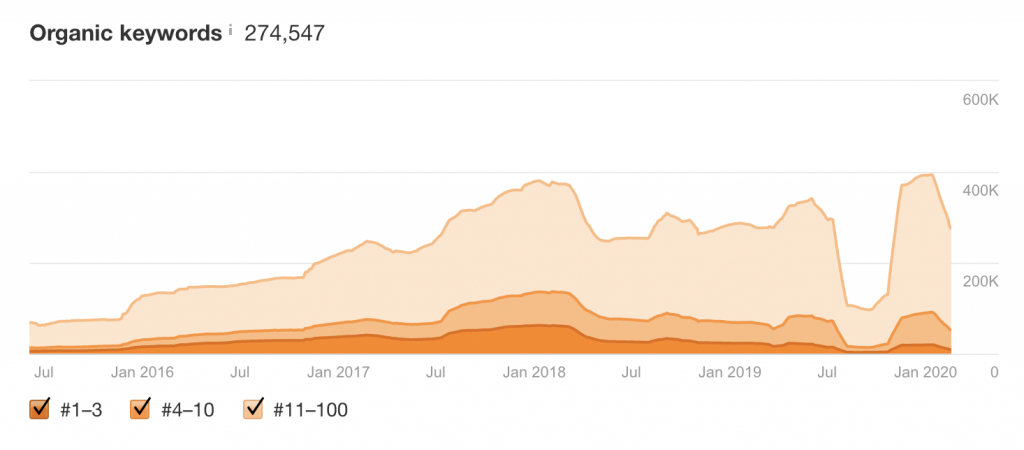Facebook, X (Twitter), Instagram, Pinterest, LinkedIn, TikTok, YouTube, etc.. are all great social media platforms to reach your tribe. They are a great way to build your community.
They are also a great way to pay for traffic. You can micro-target and remarket to audiences that weren’t technically feasible only a few years ago.
Though you are only renting the social media platforms, you do not own them.
This is a key distinction you must understand.
A case in point is I recently commented on a friend’s Facebook post. I wanted to share a URL on his personal page.
He was discussing the formatting of online articles and how unreadable posts with very short paragraphs (maybe my own LOL). I referenced the company Stansberry Research (part of Agora Publishing).
Agora Publishing are experts in direct marketing, landing page conversions, and design. Their copy is something to look at and imitate. Why? Because it works! They test everything and are leading new ways to engage audiences. Agora is one of the largest direct marketers today.
Though some of their content and techniques can be considered questionable at best. Stansberry has gotten in trouble with the SEC and FTC. They also lean right of center in their political views. I know some of the techniques they use I disagree with, though that’s not the point.
Unfortunately, Facebook won’t allow me to post any of Stansberry’s URLs within their service. I don’t know the exact reason why but I’m guessing they deem their information as “fake news”. Ever since the 2016 election, Facebook has been under the microscope. One could argue Stansberry’s content falls under this realm.
Not only are they blocking Stansberry URLs with public and personal pages, but also Facebook Messenger. I couldn’t share privately with my friend the URL I wanted to reference.
The workaround was I screen-captured the site I wanted to share with him. Facebook doesn’t look that close at images…yet.
Stansberry effectively no longer exists on Facebook’s platform.
They’ve become the Voldemort of Facebook. “He who cannot be named” effectively makes you no longer a topic of any discussion. Not just one subject, but any article from them.
If a website can’t be shared on a social media platform, does that conversation exist? For me, that’s a resounding no!
In recent years there’ve been many other examples of public figures and businesses that have been banned by Facebook. Not only Facebook but Twitter, YouTube, and Instagram.
But it doesn’t stop with just outright blocking. A slow bleed is another way.
Take, for example, the website Examine.com.
I find the resources on Examine.com to be invaluable. They provide fact-based research on various supplements for the fitness buff like I am. They give you the pros and cons of any supplement. The problem with recent “medic” updates from Google deems Examine’s content to fall outside of traditional accepted medical information.

Keyword Rankings for Examine.com (source ahrefs.com)
So Google, in recent algorithm updates, slashed their traffic. They’ve lost tens of thousands of 1-3 positioned-ranked keywords. It’s painful to watch, but it’s another cautionary tale of relying on one source of traffic.
Now I get it, it’s their platform, so it’s their rules. If Facebook wants to block content on its service, it’s their choice. If Google wants to adjust its algorithm to favor more traditional medical sites, that’s their choice.
I’m not pointing out freedom of speech issues or anything like that. That’s a topic for another discussion.
My point is, as a business owner, realize you don’t own these platforms. Facebook can effectively shut you down at any time. Overnight that source of traffic can disappear.
This isn’t just outright bans, either. I’m sure you’ve seen countless examples of bloggers who fret because the latest Google algorithm update or organic reach with Pinterest is not as good as previous. With their automated systems, they could even falsely block you. Good luck trying to get a hold of customer service. That’s another automated bot too!
Get your audience off of these platforms to platforms you control. As. Fast. As. Possible.
You control your blog. You control your email list. You control a membership site.
You should start a blog and create a mailing list.
Use the social media platforms to your advantage, but don’t be beholden to them. Diversify your traffic sources.
As a side note, it will be interesting if this article goes viral on the very social media platforms I’m railing against.
